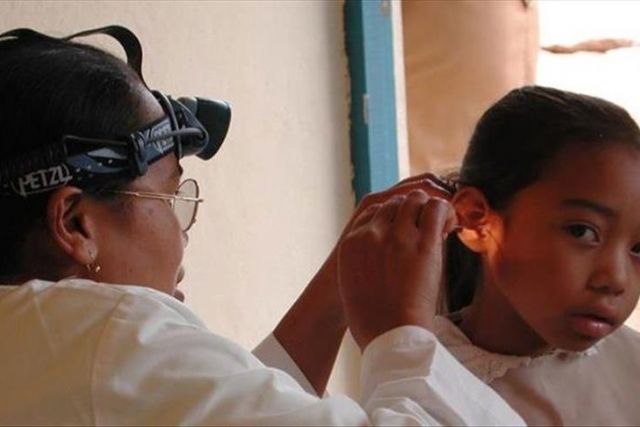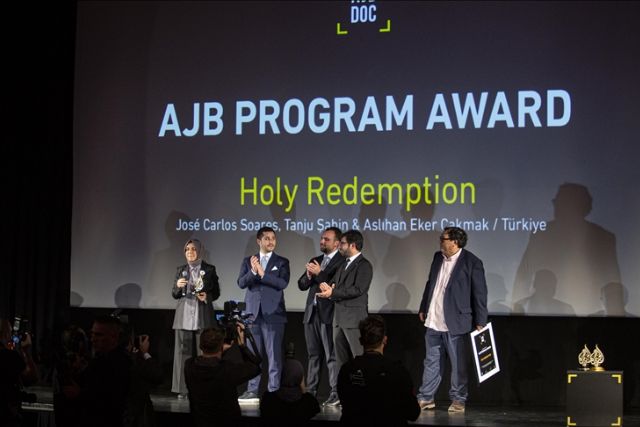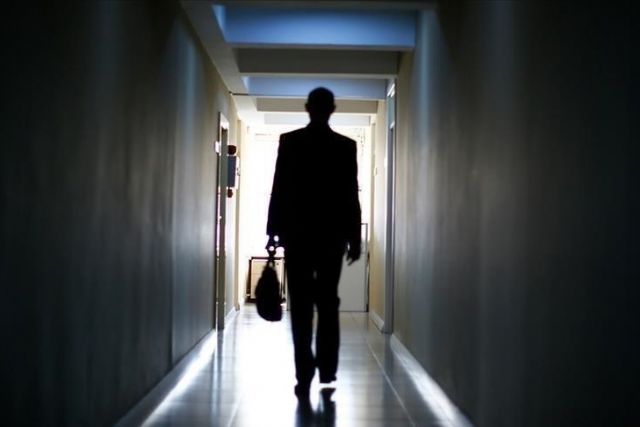Quality education for Zimbabwean children with impaired hearing long way off
Parents blame shortage of qualified teachers, sign syllabus, other materials for students' poor education

HARARE, Zimbabwe
Over four decades since independence, Zimbabwe is still offering subpar schooling to children with impaired hearing, as the few trained teachers are unable to cope in the absence of a sign language curriculum.
As Zimbabwe joins the world in commemorating World Ear and Hearing Day on Thursday, education officials admitted that the country is falling behind in providing quality education to hearing-impaired students.
Teachers are still being trained and the Infant Education Zimbabwe Sign language syllabus, which is offered for children up to the second grade, needs to be clarified for these handicapped readers.
"The junior and secondary sign language syllabuses and teachers' manuals are not yet available and are still being produced," said Taungana Ndoro, the director of communications and advocacy at the Ministry of Primary and Secondary Education.
"Sign language is now taught in public schools and students have been taking written exams since 2021. In public schools, there are special classes designated for learners who use sign language, with a teacher to pupil ratio of one to seven," Ndoro told Anadolu Agency.
"Children with hearing loss in Zimbabwe are often late to be put into education, if at all, and they just go to school to be with others rather than to study," Mirirai Nyabure, a program officer with the Deaf Zimbabwe Trust, which advocates for deaf and mute people's rights, told Anadolu Agency.
"The schooling situation for disabled children is quite bad," Nyabure said, citing a lack of teachers and education materials as the primary causes.
"A teacher is supposed to have seven students with hearing loss in a class. However, schools mix children with various disabilities in one class and teachers fail to communicate with them," she added.
Deaf students face a communication gap, Jerald Hara, a sign language teacher at a private school in Harare, acknowledged while talking to Anadolu Agency.
"Many hearing-impaired students do not have teachers who are conversant in sign language. Many deaf students do not achieve their goals since most disciplines are not taught in sign language at the advanced level," Jerald explained.
Despite the fact that sign language is one of Zimbabwe's 16 recognized official languages, it is still being developed 42 years after independence.
Hearing loss burden
Data on people with hearing impairment is often unavailable, particularly in the developing world. But, an analysis of studies conducted between 1973 and 2010 that was published in the European Journal of Public Health in 2013 found that adult-onset hearing impairment is much more common than in the pediatric age group.
However, the disability clearly affects children the most because "the many milestones of life ahead that will be impaired due to loss of speech development and social isolation that would result," said Dr. Memory Bara, an ENT specialist and surgeon in Harare.
Bara added that little research has been done on people with hearing impairment in this part of the world, despite the fact that the number of children with hearing loss is expected to rise by 2050.
"Men are affected more than women in Zimbabwe, and there is a need for research and data to be delivered to the appropriate authorities so that everyone in need of hearing aid devices receives timely medical and surgical care," she added.
Challenges to access education
To better understand the challenges faced by children with hearing loss in their quest to access learning, Anadolu Agency visited two families in Caledonia, a shanty neighborhood in the eastern part of the capital Harare.
Both families enrolled their hearing-impaired children in a nearby school, where they were placed in a class of 24 students with various disabilities.
"It was difficult for me to choose a school for my 6-year-old son because the child's assessment took an entire year. After the assessment, I was asked to take my child to the Tafara Primary School," Janet Kanodeweta, a 37-year-old mother of three, told Anadolu Agency.
She claimed that when her son was enrolled in a "special class" last year, there were no desks or seats for the students.
"Two different classes are taught in the same classroom by two different teachers, one in one corner and the other in the other.
"Once again, one class is for children with various disabilities from Early Child Development (ECD-A) to grade three, and the other class is for grades four to seven," she added, tears welling up in her eyes.
Gaudencia Magaya, a 30-year-old mother, said her 9-year-old son is in the same class as Janet's.
"Yes, my son is now in class after a two-year struggle to have him registered in school. He has started doing language, and to cope as parents, we are teaching ourselves the same language at home," Gaudencia said.
"While deaf children receive free education in Zimbabwe, teachers demand $3 per week for extra lessons for the same children," she alleged, explaining her financial difficulties by saying, "I am a vendor who spends the most of my time caring for my son and cannot afford such an amount."
The two mothers believe that the current level of learning is just good enough for their children to communicate, fearing that they may not be able to proceed to higher education or even university due to a lack of resources.
"The government treats us as if enrolling our children in these special classes is a favor," Gaudencia said, adding, "yet they don't have teachers or specific learning materials yet."
Looking through the children's books, Janet's son, who was in school at the time, had only been asked to write his name and draw a few shapes for the entire year of 2021.
He is doing the same thing this year, though he can now do a few signs from the country's only sign language book.





